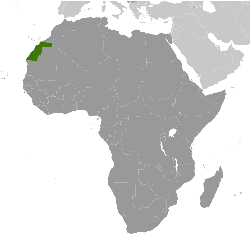by Nathan Jumper
 Basic Facts
Basic Facts
Western Sahara is formally listed by the United Nations as a “Non-Self-Governing Territory.” This means that it possesses neither independence nor formal incorporation in another country. Located on the Northwestern coast of Africa, South of Morocco and North of Mauritania, Western Sahara is comprised of a population estimated at 550,000, most of whom are Sunni Muslim. From the late 1800s through 1976, Western Sahara was a colony of Spain and, as is often the case of former colonies, Western Saharan boundaries still reflect the interests of its colonizing power. There is currently an intense dispute regarding matters of its political self-determination.
Introductory Material
Stephen Zunes is a political scientist at the University of San Francisco and focuses his studies on nonviolent social change, including faith-inspired strategies of resistance. Zunes has recently co-authored a book with Jacob Mundy entitled, Western Sahara: War, Nationalism and Conflict Irresolution (Syracuse University Press, 2010).
Here is a response to Zunes’s pro-independence position by Mohammed Daadaoui, who reiterates the traditional claims of the Moroccan government.
Here is a key legal opinion on Western Sahara’s status and use of its resources by Hans Corell, the United Nation’s (UN) Undersecretary for Legal Affairs. Cornell returns to the case in this 2008 discussion.
The 1975 ruling of the Internal Court of Justice in favor of the right of self-determination for the Sahrawi people can be found here. And here is information on the UN Mission for the Referendum in Western Sahara (MINURSO) was established by the Security Council resolution 690.
Ceasefire Information
As an attempt to mediate the issue of Western Sahara’s desire for political self-determination with the current Moroccan rule, The Baker Plan called for five years of local rule under Moroccan sovereignty, followed by a referendum on independence. This plan was disregarded by the Moroccan government.
Situation on the Ground
Here is a description of the police and security forces currently in Western Sahara. There are records available which document human rights violations occurring under Moroccan rule. This includes the Moroccan government preventing groups advocating for human rights from registering as non-governmental organization and consequently being denied access to the legal system. Condemnation of these human rights violations by the UN Security Council can be found here.
Economics and Demographics
Here is a US State Department cable which doubts that Western Sahara could be economically viable as an independent country. Professor Zunes critiques this cable for its pro-Moroccan bias.
Here is a report by the Boston Globe that concludes that an independent state is not viable in Sahara.
Here is a record of Moroccan government involvement in fishing, Western Sahara’s largest industry, and here is an embassy cable that reveals corruption on behalf of the Moroccan government in respect to their control of the fishing industry.
International Involvement; US support for Morocco
Records of US economic support of Morocco can be found here, as well as a report on Moroccan exports.
Legal Questions and The UN Declaration of Status
UN security council documents on the referendum.
Here is Stephen Zunes’s published article “On ideology in State Department.”
The New York City Bar’s Committee on the UN uses the word “occupation” to describe the situation in West Sahara and makes a case that self-determination must be allowed. See the report entitled “The Legal Issues Involved in the Western Sahara Dispute.”
Professor Richard Falk, a distinguished human rights scholar, has published The Situation of Human Rights in the Palestinian Territories Occupied Since 1967, which serves as a summary background resource of the study by the New York Bar Association. This document can be downloaded in multiple languages at this site.
The 221st General Assembly (2014) of the Presbyterian Church (U.S.A.) called the church to learn more about the situation in Western Sahara and to call upon the community of nations to support self-determination for the people of the region known as Western Sahara.